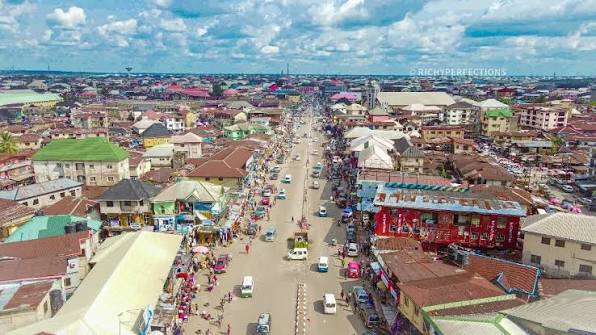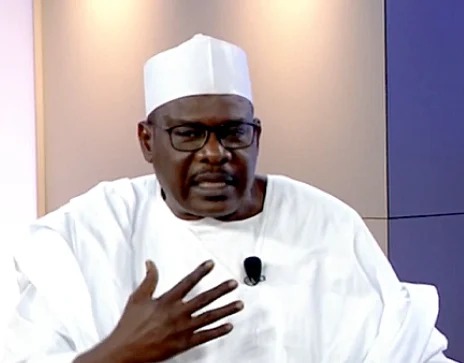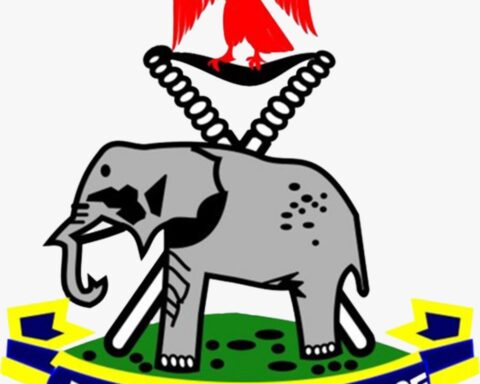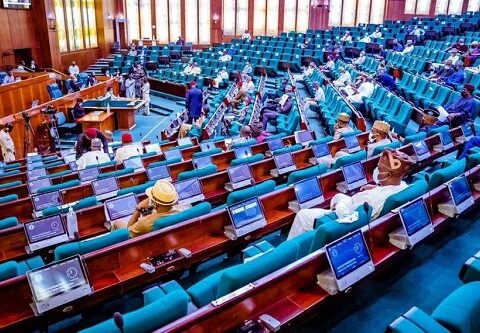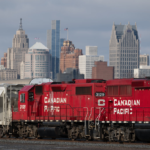By Luke Onyekakeyah
I passed through Owerri the other day and was shocked with the horrible and appalling state of Douglas road right at the centre of the burgeoning city.

From time immemorial, cities form a major indicator of civilization. The pathetic state of Douglas road betrays everything a modern city represents. There is total abandonment of Douglas road and the other adjoining streets, thereby advertising the absence of a visible hand or responsible authority.
The burning question is why has the Imo State Government abandoned Douglas Road to decay? Why did Governor Hope Uzodinma, who has transformed Owerri Orlu Road, Owerri Umuahia Road and Owerri Okigwe Road, as well as Control Post abandon Douglas Road that forms the Central Business District (CBD) of Owerri?
The emergence of cities often marks the march to civilization from open country to village, town and finally to a city. When a city expands in size, complexity and function, it becomes a metropolis. In ancient times, the factors that determined where people settled were presence of food and water along with the raw materials for shelter, tools and industry. These were in addition to a site that was secured. The modern city has moved from being concerned only with the provision of basic human needs to meeting other high-tech necessities that make the modem man civilized.
Modern cities have amenities such as electricity, diverse and efficient multi-modal transport system, including road, railway, trams, airport, telecommunication, water supply, security, etc. A major attribute of a city is the fact that it is planned. Every facility occupies a pre-determined location in space. Roads, streets, residential, commercial and recreational areas occupy their designated location. Parks and green belts are provided; sanitation and public health are given priority concern. The presence or availability of these amenities and their orderliness make the city livable and differentiates it from a rural area.
Cities are assessed on the basis of livability. For the city to be livable there must be a responsible authority to manage, maintain and care for its complex infrastructure and their functionality. Without such an authority, the infrastructure breaks down and the city disintegrates. A decadent city constitutes a public-health hazard. It is attractive to live in an efficient clean city. Contrarily, a decadent city is repulsive.
Owerri is the capital city of Imo State. Before the creation of the state in 1976, Owerri was a small town with a population of about one million people. It was more or less an agricultural town. The indigenes cultivated cassava, yams, maize and other farm crops in the surrounding farmlands and sold them in the market at the town center.
During this period, there was only one major Douglas Road, which runs through the center of the town. Mbaise Road in front of the popular Mbaise Stores, Okigwe Road at Ama JK, Orlu Road by Government House, Onitsha and Port Harcourt roads at Control joined it. There was only one industrial establishment, namely the Owerri shoe factory. The Assumpta Cathedral, Holy Ghost College, Emmanuel College, Owerri Girls College and St. Paul’s Catholic Church were the most important landmarks in the town. Owerri was in this state until the wind of change blew and Imo State was carved out from the defunct East Central State and Owerri was chosen as the capital of the new state.
Between 1976 and 1979, there was little or no change in Owerri. The real transformation came from October 1979 when the military handed power to a civilian government with Governor Sam Mbakwe elected as the first governor of Imo State. The Mbakwe administration fought like a wounded lion. Within a short period, the face of Owerri changed dramatically. Chief Mbakwe took on the city roads and gave them a face-lift. Douglas road, which was usually muddy and waterlogged, was reconstructed into a dual carriageway. To ease the traffic on Douglas road, Chief Mbakwe constructed the Wetheral Ring Road linking Okigwe road roundabout with Mbaise road at Fire Service with Douglas road off Emmanuel College heading to Aba.
The capital status of Owerri brought state administrative infrastructure. The state secretariat offices were set up off Okigwe road. There was massive influx of people into Owerri. Housing estates were built at Aladimma, Egbu road and World Bank Estate in the New Owerri capital. Water supply and sanitation were given priority attention. Transportation was enhanced through a vigorous road building program, which impacted not only Owerri but also the entire old Imo State. Chief Mbakwe single handedly embarked on the Imo Airport project. Despite the opposition from the federal authorities, he doggedly went ahead until the airport was completed and put into operation. The Concord Hotel, a five-star masterpiece luxury tourist hotel was another important landmark the Mbakwe administration built in Owerri.
There is no doubt that the Mbakwe administration transformed Owerri from a town to a city. Chief Mbakwe took it upon himself to make Owerri an efficient, clean and beautiful city. To achieve this, sanitation was given paramount attention. The Imo State Waste Disposal Board was established under the Ministry of Environment. The board embraced the culture of neatness, cleanliness and beautification of Owerri. The residents were re-oriented to keep the city clean. A tree planting program was introduced to add to the aesthetics of the state capital.
The state government purchased several silos and waste disposal trucks. These ran to and fro the length and breadth of the city and its suburbs collecting wastes and garbage and disposing them efficiently far away from the city. Street pavements were painted. Many landlords repainted their houses to conform to the new city culture. Throughout the period of Mbakwe’s administration, Owerri earned the reputation of being the most beautiful and cleanest city in Nigeria. That was the golden age of Owerri as a city.
Regrettably, the Mbakwe administration was replaced by a military administration that lasted for almost six years. The military administrations had no mandate and so were not accountable to the people. The structures and institutions in place before their inroad were left to disintegrate. The development of Owerri was stalled. The glory of the city dwindled.
In 1999 however, another civilian administration under Chief Achike Udenwa took the reign of power in Owerri. The expectation was that the new administration would retrace the steps of the previous civilian administration and return Owerri to its lost glory. But that was far from being the case. Rather, the entire city scenario changed for the worst. Today, Owerri appears practically abandoned. A drive around the city reveals a pathetic state of decay. There is waste and garbage at the places.
On Douglas and adjoining streets, heaps of garbage piled up. Visitors to Owerri must be scandalized by the utter neglect and abandonment of Douglas road, which forms the Central Business District of the city but has been converted to a garbage dump to the chagrin of the residents. This is happening right in front of St. Paul’s Catholic Church. The security situation is also among the worst in the country. What happened to the State Waste Management Board and its equipment? Is there no budget provision for the maintenance of the state capital? What happened to the budget in the past six years?
Against the backdrop of the despicable state of Douglas Road in Owerri, the Uzodinma administration should retrace its steps and accord Owerri the deserved city status? The face-lift given to the Control Post is laudable and commendable. That is how Douglas road should be given a face-lift.
It is inconceivable how a government would be sitting on garbage to administer the state. The State Government should change the present deplorable condition of Douglas Road. What legacy is the Uzodinma administration bequeathing to posterity? That should be a matter of concern.
Dr.Onyekakeyah, a former member of The Guardian Editorial Board, is a public affairs commentator and a Daily Query columnist.
Follow us on all social media platforms @dailyquery for news and analyses around the globe.
